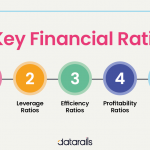
Introduction
For startups, building a dream team is vital to achieving success and driving innovation. The right combination of skills, expertise, and cultural fit can propel a startup from an idea to a thriving business. This guide explores key considerations and strategies for hiring the best talent for your startup, leveraging technology and real-world examples to illustrate effective approaches.
Defining Your Startup’s Vision and Culture
Crafting a Compelling Vision
Before hiring, it’s crucial to define your startup’s vision and communicate it effectively. As Steve Jobs famously said, “The people who are crazy enough to think they can change the world are the ones who do.” A compelling vision attracts like-minded individuals who share your passion and commitment.
Fostering a Strong Company Culture
Culture plays a significant role in attracting and retaining top talent. Define your company’s core values and ensure they align with your vision. Companies like Google and Zappos have created unique cultures that foster creativity, collaboration, and employee empowerment. A strong culture will attract individuals who believe in your startup’s mission and thrive in a dynamic environment.
Leveraging Technology for Recruitment
Utilizing AI in Resume Screening
With a high volume of applications, efficiently screening resumes is essential. AI-powered tools can analyze resumes, identify relevant skills, and screen candidates based on predefined criteria. This technology streamlines the hiring process, saving time and enabling recruiters to focus on qualified candidates. For example, companies like IBM and Unilever have successfully implemented AI resume screening to optimize their recruitment processes.
Virtual Interviews and Collaboration Tools
Virtual interviews have become increasingly common, allowing startups to connect with candidates regardless of their location. Platforms like Zoom, Microsoft Teams, and Slack facilitate virtual interviews and enable seamless collaboration among remote teams. These tools provide startups with a wider talent pool and more flexibility in finding the right candidates.
The Gig Economy and Freelancers
The gig economy offers startups access to specialized talent on a project basis. Freelancers and independent contractors provide flexibility and cost-effectiveness, especially for short-term projects or specific skill requirements. Platforms like Upwork and Freelancer.com connect startups with freelancers worldwide, expanding their hiring options.
Identifying and Assessing Top Talent
Competency-Based Interviews
In addition to traditional interviews, consider competency-based interviews to assess candidates’ skills and problem-solving abilities. These interviews focus on specific scenarios or challenges relevant to the role and provide insights into how candidates approach and solve problems. Competency-based interviews help identify individuals who possess the necessary skills and can contribute to your startup’s growth.
Utilizing Technical Assessments and Coding Challenges
For technical roles, conducting assessments and coding challenges is essential to evaluate candidates’ technical skills. Platforms like HackerRank and Codility provide coding challenges and assessments to assess programming proficiency and problem-solving capabilities. These tools enable startups to identify top technical talent and make informed hiring decisions.
Culture Fit Assessments
Beyond technical skills, cultural fit is crucial for long-term success within your startup. Assessing cultural fit involves evaluating candidates’ values, work styles, and ability to align with your company culture. Behavioral-based questions and personality assessments can provide insights into how candidates will integrate into your team.
Onboarding and Retention Strategies
Structured Onboarding Process
A structured onboarding process is vital for integrating new hires seamlessly into your startup’s culture and operations. Assign a mentor or buddy to help new employees navigate their roles and provide ongoing support. Clear goals, training programs, and regular check-ins ensure that new team members feel supported and engaged from day one.
Promote Growth and Development
Create opportunities for continuous learning and development within your startup. Encourage employees to expand their skill sets through training programs, conferences, and workshops. By investing in their growth, you foster loyalty and engagement, reducing the likelihood of turnover.
Recognition and Rewards
Recognizing and rewarding exceptional performance is essential for employee motivation and satisfaction. Implement recognition programs that acknowledge and celebrate achievements. It can be as simple as a public acknowledgment or more substantial incentives, such as bonuses or additional time off. Recognizing the value employees bring to your startup reinforces their commitment and encourages continued excellence.
Conclusion
Building a dream team for your startup requires careful planning, leveraging technology, and emphasizing cultural fit. By defining your startup’s vision and culture, utilizing technology for recruitment, identifying top talent, and implementing effective onboarding and retention strategies, you can assemble a team that propels your startup towards success. As entrepreneur Richard Branson once said, “Take care of your employees, and they’ll take care of your business.” Investing in your team is a key driver of startup growth and sustainable success.















